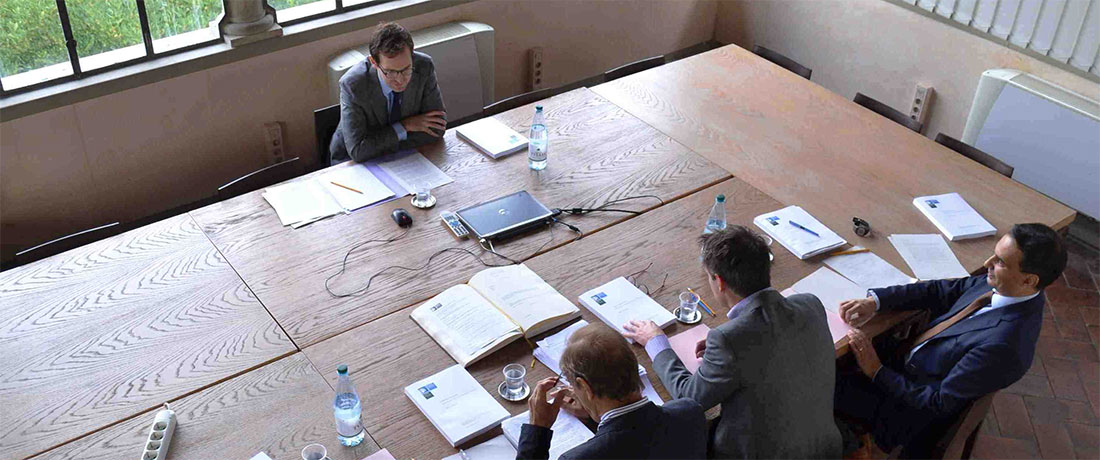
14 Oct PhD defense Bart Luttikhuis on ‘Europeannes’ in late colonial Indonesia
On 10 October Bart Luttikhuis successfully defended his PhD thesis titled ‘Negotiating modernity. Europeannes in late colonial Indonesia, 1910-1942’, at the European University Institute (EUI), Department of History and Civilization, in Florence.
Bart was supervised by Prof. Kiran Patel (University of Maastricht). His examiners were Prof. Dirk Moses (EUI), Prof. Henk Schulte Nordholt (KITLV) and Prof. Remco Raben (University of Utrecht).
Description thesis: The ‘European’ was a central figure of colonial history, occupying a pivotal position in the social hierarchy. Colonial rulers tended to (self-)identify as ‘European’, rather than as ‘White’ or by a national denominator such as ‘Dutch’ or ‘British’. This thesis studies various groups of colonial actors in the late colonial Dutch East Indies (now Indonesia)—administrators, non-governmental elites, lower class Europeans, as well as diverse Indonesian actors—in order to analyse what each of them associated with being ‘European’ in the colony.
It is argued that the historiography dealing with differentiating practices in colonial Indonesia has tended to overemphasize the importance of racial delineations. As a result, it has become a widely accepted truism that colonial societies were obsessed with defining a clear dichotomy between ‘ruler and ‘ruled’—’European’ and ‘native’. But as this thesis demonstrates, colonial actors actually preferred to think in many shades of grey. The inclusivity of the ‘European’ group was frequently adjusted and re-imagined, stressing either exclusivity or inclusivity depending on the respective context. The consequence was what this thesis calls the ‘Indisch dream’: a powerful promise, however elusive in practice, of a shot at social mobility. That is not to say that colonialism was an open system that offered opportunity to all alike. Hierarchization was still rigid and often highly oppressive. But it does mean that the people on the lower rungs actually came to feel see themselves as stakeholders in the very system that kept them in line. The Indisch dream is therefore an important factor in explaining the surprising stability and longevity of the late colonial state in its final decades.
In making the Indisch dream an attractive prospect to colonial ‘subalterns’, the discursive link between ‘Europeanness’ and ‘modernity’ was crucial. Colonial actors from all walks of life in the late colonial period became pre-occupied with being ‘modern’. Although a small minority of Indonesians advocated an autonomous Indonesian modernity, independent from ‘Europe’ and its colonial representatives, to the majority the ‘colonial European’ model looked more promising. Striving to become a ‘European’ in late colonial Indonesia was therefore ultimately an exercise in living a form of modern life that was at once rigidly hierarchical and oppressive, but also self-conciously ‘multi-cultural’. Such a model of ‘modernity’ may have become highly suspect in our present-day eyes. Even so, it is vital to realize that it has played an integral part in shaping twentieth-century notions of both ‘modernity’ and ‘Europeanness’.




No Comments